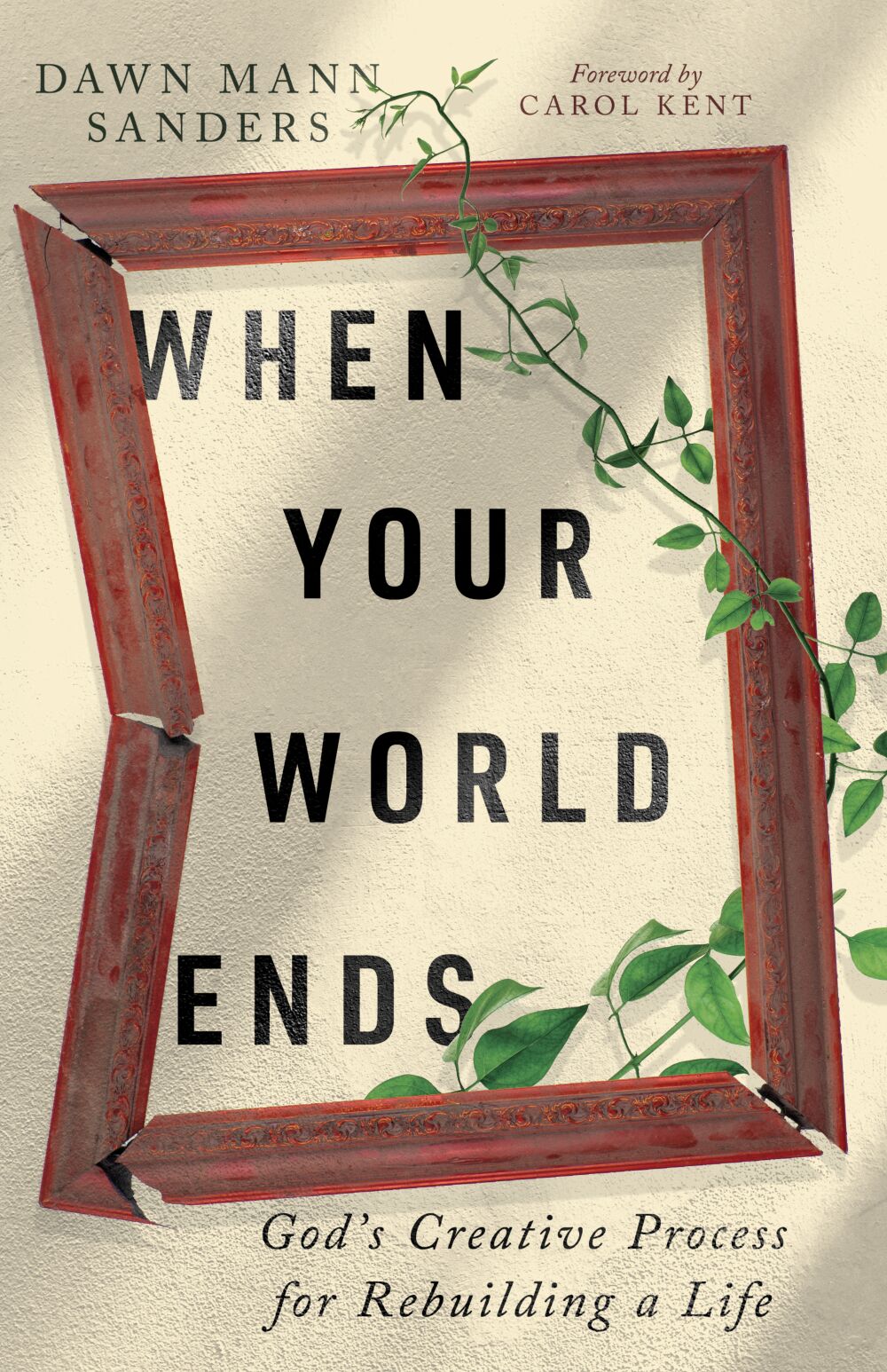Last summer, I completed a book proposal bootcamp. After the bootcamp, I felt pressure to build my readership by completing my blog posts on time. Everything I read on having a successful blog championed posting consistently to build your readership. On top of that, the word “rhythm” was very much on my heart. From this, I sensed God wanted me to build rhythms for sharing content.
But try as I might, I struggled with building my rhythms—until recently.
The Greek Concepts of Time—Chronos vs. Kairos
My struggle came from my view and understanding of time. In regards to my blog, I saw time as a calendar with dates and durations.
Chronos measures time quantitively.
Calendar time is what the biblical Greeks called chronos. Chronos is one of two concepts the ancient Greeks had for time—the other being kairos. Chronos is also the root word for our English words “chronology,” “chronic,” and “chronicle.” It measures time quantitively.
While I was focused on the calendar and quantity, I experienced pressure to get my next article posted to my blog by a certain date—the next Saturday. Under my self-imposed pressure, I struggled to develop a rhythm around posting articles to my blog regularly.
Kairos measures time qualitatively.
Then, while reading Joshua Giles’ Prophetic Forecast, I was reminded of the difference between chronos and kairos. Kairos time or divinely appointed time is the cycle of spiritual seasons. In more practical terms, kairos means “the opportune moment,” “the right time,” or “a critical opportunity.” It measures time qualitatively.
Kairos is an archery term meaning “opening.” It refers to the opening an arrow must pass through. It gives imagery of the fabric of time passing before an archer. When the opening appears, the archer must seize the opportunity to hit his/her target and accomplish his/her goal. Success requires accuracy with sufficient force to penetrate the fabric.
I had to stop trying to follow dates on a calendar and follow the Spirit instead. Share on XThat meant I had to stop trying to follow dates on a calendar and follow the Spirit instead.
Part 10 of Choosing Wisely
Now, we are in the middle of a deep dive into Genesis 2:15-17. We are studying this passage as part 10 of our series on making decisions when creating our new lives. Today, we are discussing time in order to understand when the consequences of eating of the tree of the knowledge of good and evil would befall Adam and Eve. Today’s con
Then the Lord God took the man and put him in the garden of Eden to tend and keep it. And the Lord God commanded the man, saying, "Of every tree of the garden you may freely eat; but of the tree of the knowledge of good and evil you shall not eat, for in the day that you eat of it you shall surely die."
~ Genesis 2:15-17
We are looking at this passage of Scripture because it contains the first choice God gave to humanity, the choice of selecting our food. As a passage about choice, we can extract guidelines from this passage we can use to choose the activities that make up our lives.
The Hebrew Concept of Time
In today’s introduction, we discussed the Greek concepts of time. As you have probably figured out, that was a setup. It’s a lead-in to the Hebrew concept of time. We are switching to the Hebrew concept of time because the original language of the book of Genesis is Hebrew and Moses, who was himself Hebrew, wrote Genesis to a nation of Hebrews.
The Hebrew concept of time was less abstract than the Greek’s. It was more concrete. For the Hebrews, time wasn’t a fabric that you sow events into. No, for the Hebrews, there was no separation of time from events. The imagery for the Hebrews is a pregnant woman that carries multiple children. The events fill the time the same way children fill a woman’s womb.
For the Hebrews, time is eventful.
However, to sever the events from time like a doctor would an umbilical cord after birth would be to create other timelines. That bit of quantum physics and abstraction never would have entered the concrete minds of the Hebrews. No, for the Hebrews, unlike a woman, time carries the events throughout eternity. Time would never be without the event that occurred at that time. For the Hebrews, time is eventful.
Applying the Hebrew Concept of Time to Genesis 2
The connection between time and events is why the Bible includes phrases like Naomi and Ruth “came to Bethlehem at the beginning of barley harvest” (Ruth 1.22). The time is related to the event.
The same is true in Genesis 2—only the events are acts of God. In verse 4, the event is the creation of the heavens and the earth—life. And in verse 17 that we are studying, the event is the consequence for eating of the tree of the knowledge of good and evil—death.
This is the history of the heavens and the earth when they were created, in the day that the Lord God made the earth and the heavens, before any plant of the field was in the earth and before any herb of the field had grown. For the Lord God had not caused it to rain on the earth, and there was no man to till the ground; but a mist went up from the earth and watered the whole face of the ground. ~ Genesis 2:4-6
With both of these events, the reference to time is “in the day that.” Whether you believe a “day” in the creation story is a 24-hour period or not, from the creation story, we know that God created the heavens and the earth over six of those days. So, in verse 4, when it says, “in the day that the Lord God made the earth and the heavens” it means “when the Lord God made the earth and the heavens. Or “in the day that” here means “when.”
“In the day that” also means “when” in verse 17 that we are studying. This is why the NIV translates the phrase, “for when” in both verse 4 and 17.
Guideline for Time
That brings us to today’s guideline taken from our deep dive into Genesis 2:17:
Guideline 19: Complete activities at the right time.
Guideline 20: Complete activities using the right time.
Guideline 21: Follow the Spirit to identify the right time.
The “Choosing Wisely” Series:
- Part 1a – Choosing Wisely
- Part 1b – Getting to the Root
- Part 1c – Fueling Your New Life
- Part 2 – A Habitat for Humanity
- Part 3 – The Order of Rest
- Part 4 – The Right Conditions for Rest
- Part 5 – What’s the Best Decision-Making Process for Creating New Lives?
- Part 6 – Five Freedoms When Creating a New Life
- Part 7 – The Risks of Giving Into Temptation
- Part 8 – How Knowledge Plays in Decision Making
- Part 9 – How Morality Applies to Decision Making
- Part 10 – Biblical Concepts of Time When Making Decisions
- Part 11 – Some Certainties We Have in This Life
- Part 12 – How Will Your Relationship End?
COMPLETE LIST OF GUIDELINES
Guideline #1: Choose activities that align with our assignments.
Guideline #1a: The availability of activities that align with our new lives depends on the level of effort we put into completing our assignments.
Guideline #2: Choose activities that support our assignments.
Guideline #3: Choose activities that provide what our lives and assignments need to live, grow, and stay healthy so that we can produce the best fruit.
Guideline #3a: Choose activities that balance the things related to our assignments that we want to do with the things related to our assignments that we need to do.
Guideline #4: During seasons of plenty, choose activities that for seasons of scarcity by storing excess resources.
Guideline #5: Choose activities that are fueled or empowered by the Son.
Guideline #5a: Choose activities that are fueled by clean energy—energy that doesn’t pollute the environment and has a positive impact on the environment by counteracting the pollution produced by “dirty energy.”
Guideline #5b: Engage in activities that are fueled by renewable energy—energy that is never depleted or is constantly replenished.
Guideline #5c: Choose activities that are fueled by universal energy—energy that is accessible anywhere.
Guideline 6: Choose activities that worship and serve the Lord.
Guideline 7: Choose activities that obey the Lord’s commands.
Guideline 8: Choose activities that are enjoyable and satisfying.
Guideline 9: Choose to complete activities in order.
Guideline 10: Choose to rest before beginning your assignments.
Guideline 11: Choose to rest your new life on a solid, unchanging foundation.
Guideline 12: Always start with God.
Guideline 13: Choose the best option.
Guideline 14: Choose activities that allow you to maximize your power and influence.
Guideline 15: Weigh the risk before choosing an option.
Guideline 16: Pay attention to your Father’s instructions to know understanding.
Guideline 17: With all your getting, get understanding.
Guideline 18: Choose activities that lead you away from evil and towards good.
Guideline 19: Complete activities at the right time.
Guideline 19a: Complete activities using the right time.
Guideline 19b: Follow the Spirit to identify the right time.







